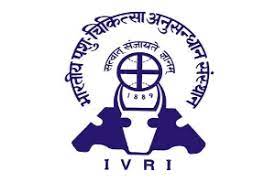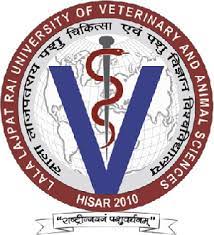A doctoral degree in veterinary pathology is the highest level of a graduate degree for a veterinarian. It involves the scientific study of diseases, their causes, and their treatment. Candidates must have a bachelor's degree in a related field and at least 55% marks or an equivalent grade in graduate courses. In addition, students should have experience working with animals. They must also have excellent communication skills and a strong analytical mind.
A Ph.D. in veterinary pathology program is designed to allow students to complete their degree program while also completing their professional training in a College of Veterinary Medicine. Upon graduation, graduates will have extensive experience in the diagnosis, treatment, and prevention of animal disease and be capable of communicating their findings effectively to a variety of audiences, including veterinarians, scientists, and the public. Additionally, the program focuses on teaching students how to conduct research, write concise grant proposals, and conduct clinical trials.
The Ph.D. program in veterinary pathology provides students with a unique opportunity to pursue an academic career in veterinary pathology while completing the professional curriculum at the College of Veterinary Medicine. The goal of the program is to train veterinarians who are capable of becoming leaders in the field of veterinary pathology. A doctoral degree in a veterinary pathology program can help students become leaders in the field of veterinary pathology by preparing them for the profession of veterinary pathology.
Ph.D. in Veterinary Pathology Eligibility
Candidates who want to take admission in Ph.D. must have a post-graduate degree in Veterinary Pathology and its relevant discipline with at least 55% marks from a recognized university and must have passed the national level entrance examination or university level entrance examination. National level entrance exams like UGC NET / UGC CSIR NET / GATE / SLET or University entrance exams consist of written tests and personal interviews.
The Benefits of a Ph.D. in Veterinary Pathology
There are numerous advantages to pursuing a Ph.D. in veterinary pathology. The field is in high demand and there is a need for highly trained trainees. The program should provide students with hands-on experience by providing a structured curriculum that integrates research with clinical practice. The student will be able to meet with biomedical scientists to discuss their research ideas and receive annual awards.
The Ph.D. in veterinary pathology is a multidisciplinary program, that provides graduate training in modern pathobiology, immunology, and investigative microbiology. The coursework focuses on investigating disease processes in animals and the host response. The focus of the program is on research in a progressive area. There are many opportunities to cross-train and become a leader in veterinary pathology.
The training program at OSU is unique in its small-group and one-on-one mentoring, and it prepares veterinary professionals for leadership roles in the field. The program also stresses collaboration between faculty and trainees. The students are given the opportunity to attend national and international conferences and present their research findings. They also have the opportunity to attend a number of seminars and conferences and present their work to other veterinarians.
The training program at OSU focuses on case-based learning. It includes lectures by distinguished professors and seminars by veterinary pathology students. Moreover, students are given elective courses in veterinary pathology. Basic pathology electives include interpreting gross lesions, cytology, and histopathology. The program also emphasizes ophthalmic pathology, neuropathology, and cardiac pathology. Additionally, the program offers monthly diagnostic veterinary pathology.
The Career and Job Opportunities for Ph.D. in Veterinary Pathology
Veterinary pathologists analyze the tissue, fluid, and organs of dead animals. While the Bureau of Labor Statistics does not break down career opportunities for veterinary pathologists, it does predict a steady growth of the field. From 2016 to 2026, the BLS anticipates a 19% growth in the veterinary field. This growth is attributed to an increase in consumer spending, as well as quick developments in veterinary medicine.
A Ph.D. in veterinary pathology can lead to a variety of career options. As a veterinary pathologist, you could work in a diagnostic laboratory, in a governmental agency, or in a private diagnostic lab. Additionally, you could teach in a college or university. To pursue a Ph.D. in veterinary pathology, you'll need to pass the NET exam and meet UGC regulations.
Veterinary pathologists may work in diagnostic laboratories, government agencies, or industry. If you're interested in teaching, consider a career as a professor. This degree will help you gain valuable experience in a field that is constantly changing. As a veterinarian, you'll be responsible for diagnosing and treating animal diseases and educating the public about these diseases.
The Future Scope of Ph.D. in Veterinary Pathology
The Institute of Animal Pathology at the University of Bern, Switzerland is a bridge between the clinical disciplines of veterinary medicine and basic science. Graduates of the program have many career options. They may pursue positions in academia, governmental agencies, private diagnostic laboratories, or the pharmaceutical industry. Upon graduation, the successful candidate will focus on the morphological pathology of companion animals and farm animals. They will also join one of the institute's research groups.
Veterinary pathologists use specialized microscopes to identify the causes of disease. They also contribute to the development of drugs and animal health products. Their work also involves conducting research and advising government agencies on animal diseases. In recent years, veterinarians have become the leading experts in the diagnosis of bird flu and swine flu. This is an exciting field that is expanding rapidly. With an increased demand for veterinary medicine, there are opportunities for advancement in every field of the discipline.
A Ph.D. in veterinary pathology can lead to a variety of exciting career options. It can help veterinarians become clinician-scientists and leaders in the field. A combination of residency and graduate school will train veterinarians to work as scientific researchers and teaching assistants. Both programs will prepare you to sit for the board certification exam offered by the American College of Veterinary Pathologists. In addition, residents will be eligible to take the prestigious American College of Veterinary Pathologists' examination.
Ph.D. Research Programme duration
The Ph.D. in Veterinary Pathology course is a minimum of 3 years and a maximum of 5 years in duration. This depends on the university offering the course.
Fees for research program for Veterinary Pathology
The average fee for Ph.D. in Veterinary Pathology degree is between INR 50000 and INR 500000.
 5 Years
5 Years
 PhD
PhD
 Research
Research















 back
back